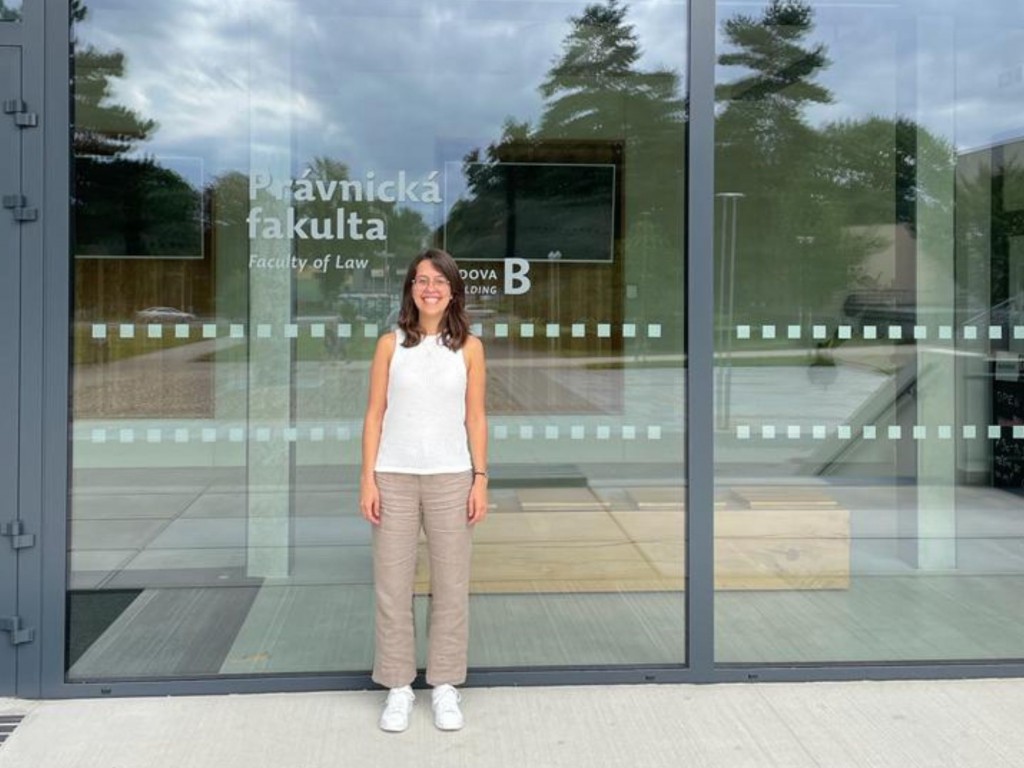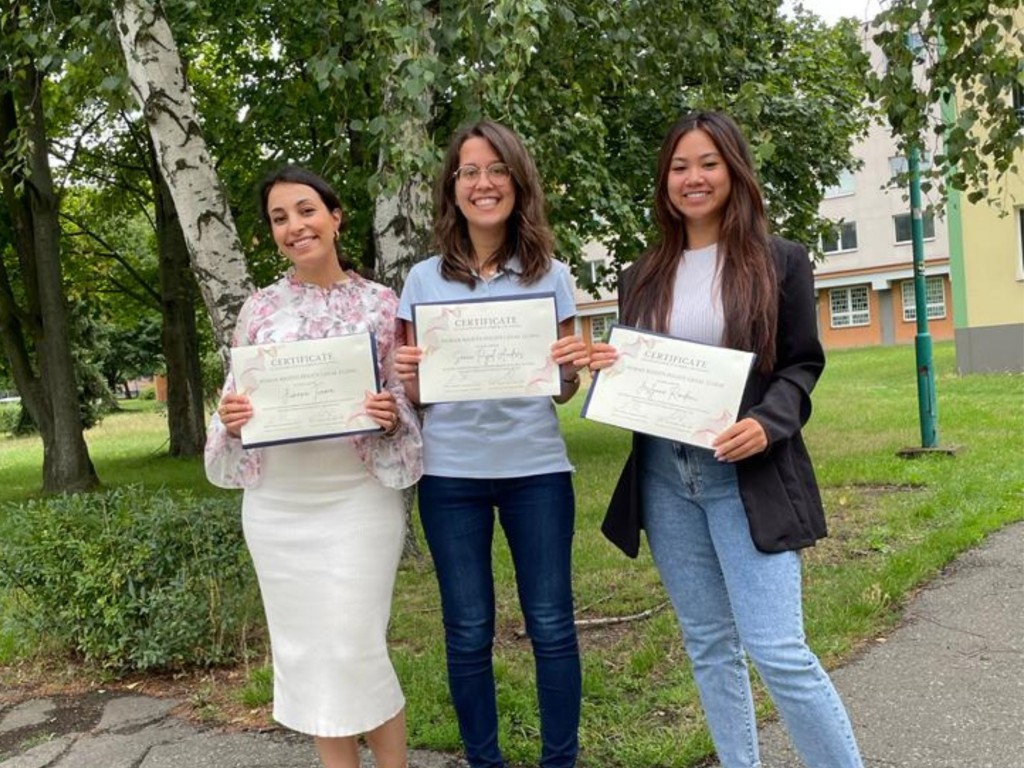30/10/2023
Sònia Pujol, URV student who participated in the Summer School at the University of Palacký
“Participating in a summer school is enriching from an academic, professional and personal point of view”

Sònia Pujol is a URV student who participated in the Summer Law School: Human Rights Policy Legal Clinic at the Summer School of the Palacký University of Olomouc (Czech Republic), one of the short-term training programmes offered by the Aurora alliance
Sònia Pujol is a URV student who participated in the Summer Law School: Human Rights Policy Legal Clinic at the Summer School of the Palacký University of Olomouc (Czech Republic), one of the short-term training programmes offered by the Aurora alliance.
How did you find out about the Aurora Alliance Summer School?
I discovered it on the recommendation of other colleagues from the Universitat Rovira i Virgili, who had a similar experience to mine, although at other universities in the Aurora alliance. I have to admit that the positive evaluation of their experience encouraged me to participate this past summer. That was the key!
Were you already interested in an international stay?
Months before formalising my enrolment in this course, I had been considering the possibility of a short training stay in another country during the summer. I was essentially interested in broadening my knowledge and at the same time this could have an impact on the pre-doctoral research that I am carrying out. In addition, I was also interested in acquiring new research or teaching skills and improving my communication skills.
What motivated you to participate in this course?
After consulting the courses offered by the Aurora alliance, the course of the Summer School at Palacky University (Olomuc) caught my attention, because I saw its teaching method as a good opportunity to get acquainted with a way of teaching and learning in the field of “legal clinic”, and even more so, with an interesting subject, such as Human Rights.
What did you do during this programme?
During the two weeks that the course lasted, I had the opportunity to learn about a specific method of teaching law, known as the policy legal clinic. This method of teaching combines theoretical and, above all, practical aspects. It focuses especially on the analysis and detection of the problems involved in the application of a rule in a given social context and on the ability to propose mechanisms to improve or address the existing situation.
In these sessions, which took place in the mornings, we dealt with issues of current interest related to Human Rights (from an international, European and comparative law perspective), such as forced migration and international protection; persons with disabilities; sexual and gender-based violence; the interpretative evolution of the right to a family; the right to housing; the right to the environment; the investigation of massive human rights violations; among others.
And the afternoons were spent working on a small research project, which we handed in at the end of August. We organised ourselves into groups and each group dealt with one issue of interest. In my case, together with my colleagues, we dealt with the problem of overpopulation in prisons, from a French, Italian and Spanish perspective, detecting the deficiencies and difficulties in each of these regulatory and penitentiary systems and proposing measures that could help to solve the existing problem.

What would you highlight?
We had the opportunity to get to know the facilities and the functioning of the Legal Clinic and hear about the personal experience of the students who were part of it. As a result of this visit to the Legal Clinic, with the rest of the summer school classmates we showed an interest in sharing the functioning of the legal clinics in the respective universities and the truth is that it was very enriching.
Beyond broadening my knowledge and becoming more aware of Human Rights issues, the experience helped me develop critical analysis skills in examining regulations and their practical application. It was also fascinating to learn about other teaching methods like clinical legal education. Even though in this course we worked on one modality, the “policy legal clinic”, I believe it’s vital to promote and make legal clinics known, as they represent a “win-win” for both students and universities, as well as for society. Additionally, during the training stay, I got the chance to immerse myself not only in the culture of the host country (Czech Republic) but also in the cultures of my fellow participants’ countries (France, Italy, Netherlands, Denmark, etc.).
Did you enjoy this intensive summer course format?
I appreciate the option to attend this course over two summer weeks. It’s a way to combine academic and professional training with exposure to different cultures. In my case, I might have found it challenging to follow it over a semester, mainly due to time constraints. However, I think condensing it into two summer weeks encourages more convenient and in-person participation.
Would you recommend this experience?
I would undoubtedly recommend taking this course. Our peers from UPOL welcomed us warmly. It’s an immensely enriching experience, both academically and professionally, as well as personally.
Would you like to add any other feedback?
I positively value the fact that the Aurora Alliance offers and facilitates students and university staff the chance to attend training courses where participants come from different countries and disciplines, like economics and psychology. This makes you realize the importance of approaching controversial issues from an international, European, comparative law, and multidisciplinary perspective, aiming to provide the best solutions to existing challenges.
